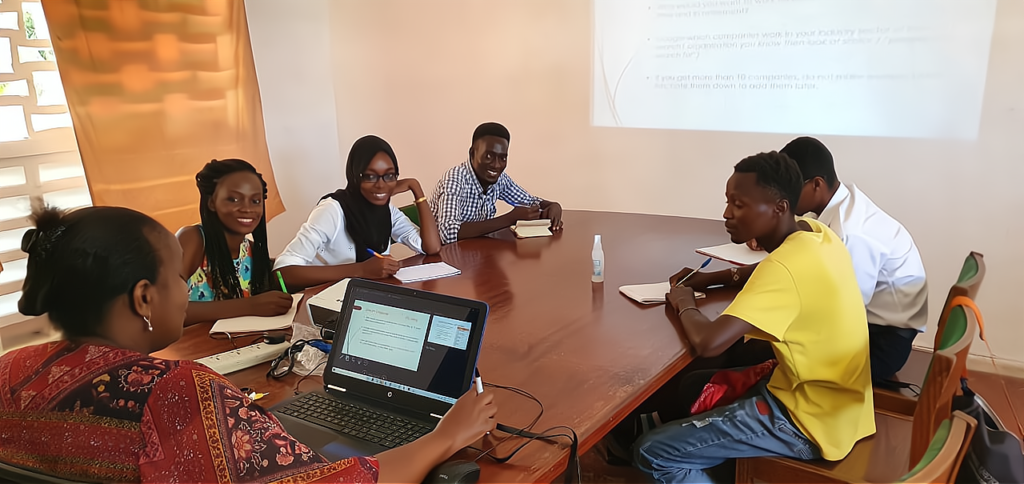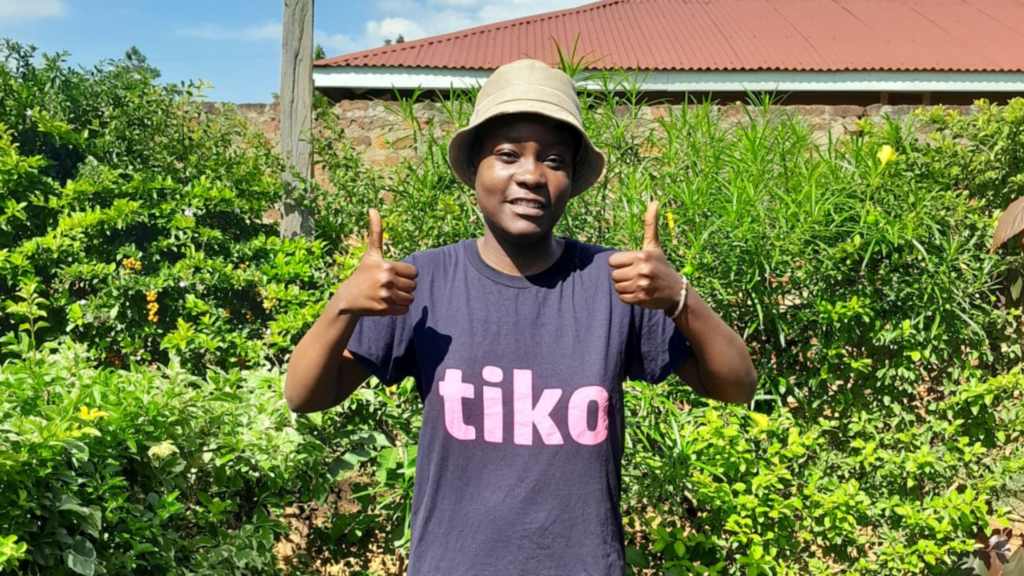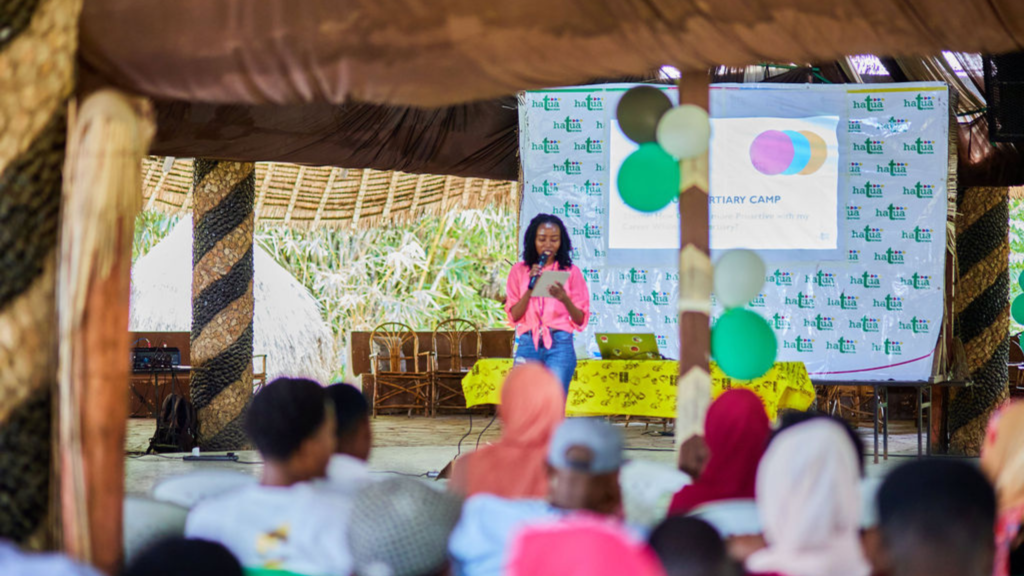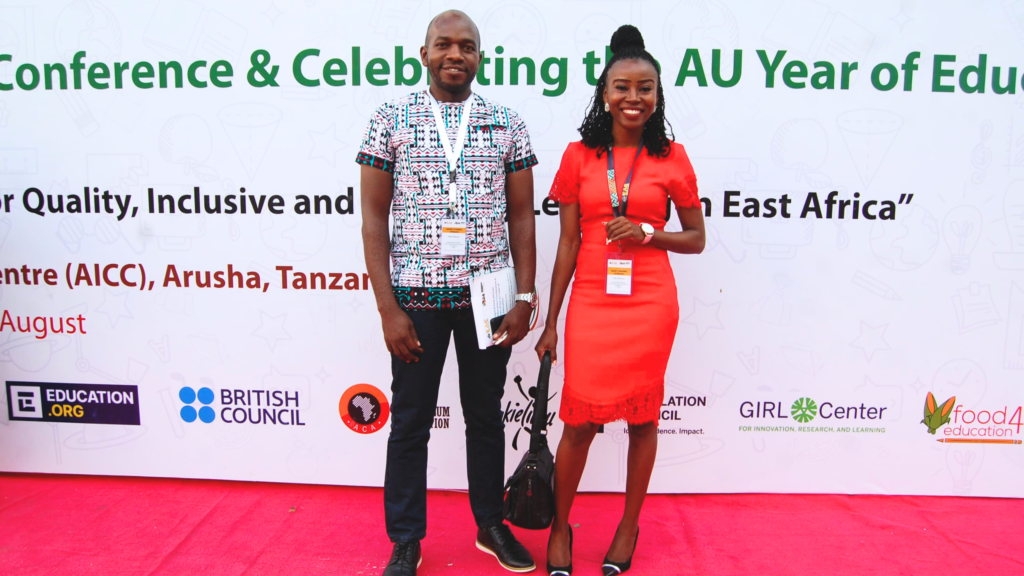Guest post by: Hillary Ojiambo (Secondary Mentoring Officer)
I still remember my first professional interview. I was a bored first-year student with a long holiday and desperate for something to do. As a student of Journalism, confident in my speaking and writing abilities, I walked into Imani Radio in Kitale. I wasn’t so sure about what I wanted. But I was sure that another day of idleness would drive me mad.
As fate would have it, Imani Radio was hiring volunteers. My inquiry was a stroke of luck that landed me an interview the next day.
And so it was that I walked past the gates of Imani Radio carrying a blue folder in my left hand. Inside the folder: A CV, a cover letter, and copies of articles I had written on campus. A journalist indeed. My right hand swung in sync with my steps. I was confident that they needed no other.
Inside the interview room sat a panel of six. They introduced themselves – like they do in all interviews but this time, it was a mistake. I wish we had just proceeded without the introductions.
The panel consisted of people whose voices had endeared me to become a journalist. Putting a face to each name sent waves of panic down my spine. My palms were sweaty. My knees buckled underneath the table. My lexical prowess faded under clods of fear and insecurity. I stared at them like I was beholding a winged goat. I forgot my name!
I am not a stranger to articulation. English and Swahili flow with natural fluidity. Yet at that moment, the thought of opening my mouth and introducing myself had me shrinking in my seat.
Someone offered me water and told me to relax. My palms were too shaky and sweaty to hold the glass. My eyes too teary to hold anyone’s gaze.
I couldn’t understand what was happening. In my heart, I wanted to be strong and confident. In my head, I knew this was an opportunity to express, impress and win. Yet my body’s violent reaction was a malicious betrayal.
Eventually, I found my voice, but too bad, I was a terrible stammerer. My answers were curt and anxious. When they asked me why I thought I was better than the rest, I said, “I am not better than anyone. There are always better people and I am not them.” When they asked why I wanted to volunteer, all I could remember was my desperate bid to escape idleness with no words to express it. When they asked about my qualifications, I fumbled to unlock my blue folder, failed, and then raced through a narration of my primary through university qualifications like I was begging for my life.
Ten minutes later, the interview was over. I dashed out of that hell hole, scampering for the safety of home. If this was the way of job searching, I was not cut out for it.
I knew they would never reach out. They never did.
Ten years later, I find myself in an interview, on the other side of the panel. As the job-seeker walks in, I can see the uncertainty in their eyes. The desperation on their faces. The overconfidence in their steps.
As the interview progresses, I see the public speaker who has lost his voice. I see the facilitator who cannot maintain eye contact. I see the writer who has forgotten his craft. I see the panic and anxiety set in. I remember my first interview. I empathize.
Nothing teaches you about empathy than sitting on the other side of the panel and seeing yourself through the lens of another jobseeker. You see them for who you were – who you can be if tables turn. All I want to see is that spark of preparation that can give the jobseeker an opportunity.
For the job-seeker, the spark of empathy in the interview room is ignited by adequate preparation. Here are a few tips:
- Understand why you are the best fit for the position
- Read through the job description. When they ask about you, set the tone by aligning your introduction to who the company is looking for.
- Leverage on the power of storytelling: Have an example to back your answers.
- Read through the company website and understand what they do. Align your answers to the mission and vision of the hiring company.
- Prepare two or three good questions to ask the panel.
I have come to realize that nothing ignites the fire of empathy than a well-prepared interviewee!
All the best in your next interview.
—-
View the original post here.


 Read More
Read More
